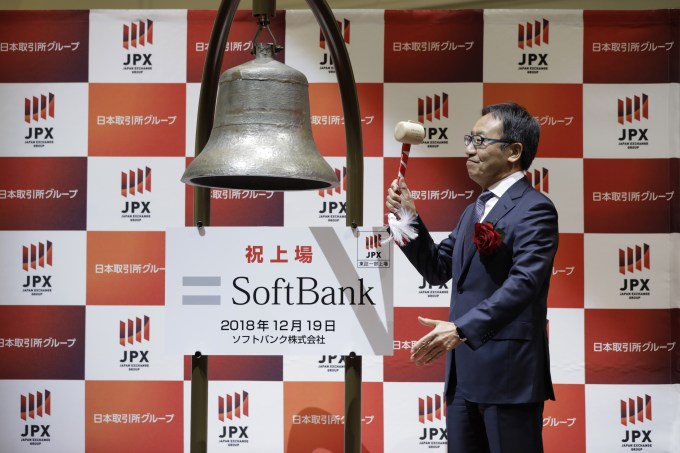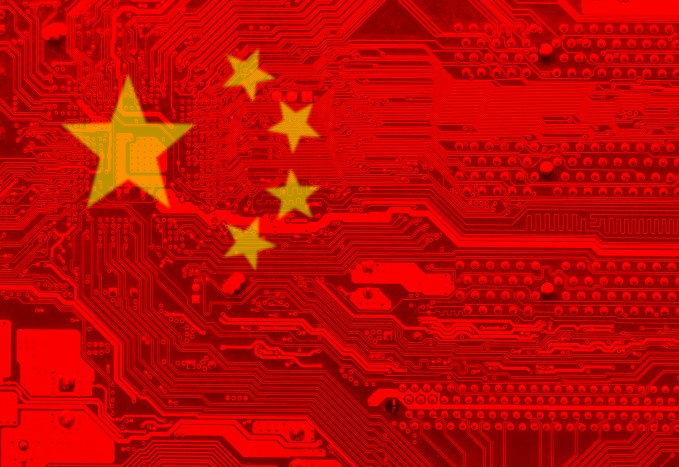Why longer term sheets are better
Recently in a conversation, the length of term sheets came as a topic (I assure you, it was a riveting conversation). The complaint was that a term sheet which had recently been received was too long, and therefore the VC who sent it wasn’t being founder friendly. The travails of successfully raising money!
Actually though, a longer term sheet is much more founder friendly and good business practice, and founders should be leery of VCs bearing short contracts.
Historically (i.e. about 6 years ago), term sheets used to be staid affairs, printed on plain white paper in standard Times New Roman font right out of Word. It was a wretched and horrifying world until the cool VCs showed up, who added design accoutrements (Bolded section heads! Logos! Colors!) while claiming that they had a “single-page” term sheet for founders, implying that the term sheet’s simplicity and prettiness showed that they weren’t really investors, but more like a Brooklyn barista with an art side hustle (and a lot of cash).
Here’s the thing, term sheets have an incredibly important purpose, which is to set forth in clear language the terms of a deal. Unfortunately in modern venture capital, there are a lot of terms that have to be negotiated in any equity round, from financial terms to option pools, to board structure, to voting rights on major business decisions like selling the company, and much more. Simpler term sheets either relegate many of these items to “standard venture capital terms apply” or some other vague language, or just wholly don’t mention them at all.
The challenge is that once the term sheet is signed, it becomes the blueprint by which the legal counsels for the VC and founder begin to write up the legal contracts that allows the VC to buy equity in the startup. When term sheets are clear, precise, and comprehensive, the lawyers just go to work and turn those agreed-upon terms into legal language in relatively short order.
When there are key terms that are “standard” or absent from a term sheet though, lawyers do what lawyers have to do: they negotiate for their respective party. Suddenly a term that seems fairly standard is up for debate, and unless a founder (and their VC) is paying very close attention to the legal process (from experience, no one really is), then the legal bills for the round can spiral very, very rapidly. That can pose a double whammy for a startup, since many VCs continue to charge the legal fees of conducting a round to the startup they are investing in.
I’ve seen founders in absolute sticker shock after seeing the legal costs of their round total into the upper tens of thousands of dollars because their lawyers racked up time trying to plow through term after term that could have been made clearer by the parties up front.
So, what’s more founder friendly: a longer term sheet that sets the deal terms clearly up front and likely saves the founder legal costs, or a shorter (but color!) term sheet that can end up costing far more down the line?
This is mostly a problem for first-time founders raising their first round of capital. I have a sinking feeling that many VCs take advantage of this naiveté to get better terms than they might have gotten otherwise had they actually walked through all the language up front. In later rounds, founders either ask all the right questions about the next round of capital, or their other existing investors figure this out on their behalf.
It’s good legal practice to always get all material terms figured out before your lawyers start writing contracts, whether in fundraising, or customer contracts, or what have you. You can’t always predict if there is something else that will end up being a disagreement, but getting most of the terms squared away will save legal time, and that is money ultimately in your pocket.
Side note: Extra Crunch published part two of five of our comprehensive guide to legal issues facing startups, this time focused on intellectual property. Don’t miss out on part one which focused on corporate issues.
Extra Crunch’s first conference call is today
We are hosting the first conference call for Extra Crunch subscribers today at 2pm EST / 11am PST. Call-in details are being sent out to members by email roughly one hour in advance. Today, Eric Eldon and I will talk briefly about Extra Crunch, and then TechCrunch social and product maestro Josh Constine is going to talk about the strategic issues confronting the social giants. Join us!
More SoftBank Vision Fund sadness

Kiyoshi Ota/Bloomberg via Getty Images
Written by Arman Tabatabai
Get out your popcorn because there’s more drama involving SoftBank’s giant Vision Fund and its LP base. Bahrain’s sovereign wealth fund stated that it no longer planned to invest in the Vision Fund. Despite previous discussions with SoftBank, the fund plans to instead put its money into infrastructure across areas like energy, healthcare, and education.
With assets of roughly $15 billion under management, Bahrain’s fund is small potatoes when it comes to SoftBank, and its contribution likely would have been much smaller than those of its Abu Dhabi and Saudi Arabia counterparts. However, after recent reports that Persian Gulf LPs are growing frustrated with the Vision Fund and are putting more money to work in infrastructure, Bahrain’s decision could indicate a broader change in sentiment towards the Vision Fund. Just look at the comment the CEO of Bahrain’s Fund gave to Reuters:
“We talked with them and with many people, but it shows we’ve not seen something we think we can add value to or it could add value to us.”
SoftBank CEO Masayoshi Son has wanted to scale up the size of Vision Fund II, but that dream may well be fading as more large wealth managers decline to engage.
Steam and video game streaming

Photo by Andy Cross/The Denver Post via Getty Images
Extra Crunch writer Chris Morris had a dive into the challenges facing Steam yesterday. Steam is facing two trends. First, publishers are increasingly getting smart about owning their customer relationship, which is hard to do with the design of Steam’s platform. The second is that video game streaming is getting closer to reality, and that doesn’t bode well for a game store. Plus, developers want to keep more of their revenue, and Steam takes a lot.
What’s interesting here is that publishers (and I mean big, AAA publishers) are increasingly comfortable with the notion that they can attract customers to their own independent store fronts and don’t have to pay the Steam tax in order to get in front of customers. What concerns me is that indie developers both don’t have the leverage to negotiate with Steam and don’t have the marketing budgets or fanbases to reach out to a wide audience. That’s not a great world, and an opportunity I think to figure out how to create a more even playing field for independent game creators.
The chip space keeps getting hotter as Korea’s SK leads round for Chinese chipmaker

IvancoVlad via Getty Images
Written by Arman Tabatabai
TechCrunch writer Rita Liao reported overnight that the A.I.-focused Chinese chipmaker Horizon Robotics raised a $600 million round led by subsidiaries of Korea’s SK Group, including its semiconductors segment.
We’ve previously discussed the intensifying global competition in the chip space, and SK’s investment shows that no one wants to miss out on the next innovative technology like previous incumbents who now find themselves playing catch up.
It’s worth noting that Intel’s venture arm, Intel Capital, is also an investor in Horizon and led their previous fundraise, as Horizon seems to offer up another opportunity for the US chip giant to make up lost ground in AI chip innovation and to gain share in the Chinese market now that they have canceled a partnership with China’s state-backed chipmaker Unisoc.
The data point is another positive for Chinese chipmakers, who seem to still have access to foreign capital on top of more than enough domestic — often state-backed — investments. The city of Beijing just raised its first venture fund with $1.5 billion focused on chips, A.I., and other areas, while China is reportedly nearing the closing of its second state-backed semis fund that some estimate might be nearly $50 billion in size.
More news
Written by Arman Tabatabai
California may have canceled HSR, but China is moving forward with an IPO
While US high-speed rail (HSR) projects continue to fall flat on their face, China Railway Corporation is now planning to IPO its Beijing to Shanghai HSR line within the next year. There’s always some financial risk with publicly-traded infrastructure, but the line’s securely profitable and the deal should help shore up the finances of its owner as it plans to make its largest rail investments ever this year.
Japan’s antitrust investigation is the latest in Asia’s new wave of regulatory scrutiny
Japan is reportedly initiating an antitrust investigation into the country’s biggest ecommerce platforms. Investigators will be looking to see whether Amazon Japan, Rakuten and SoftBank-subsidiary Yahoo! Japan launched benefit programs that ultimately are subsidized by and cut into the revenue of its small-to-midsize vendor suppliers.
The investigation is the latest in Japan’s broader effort to increase regulatory scrutiny on big tech, a global trend that seems to be permeating Asia as seen in our previous discussions on India. While it’s unclear how the heightened scrutiny will impact companies’ perception of these markets, it’s certainly clear that the “move fast and break things” playbook is getting tougher to run.
Obsessions
- We have a bit of a theme around emerging markets, macroeconomics, and the next set of users to join the internet.
- More discussion of megaprojects, infrastructure, and “why can’t we build things”
Thanks
To every member of Extra Crunch: thank you. You allow us to get off the ad-laden media churn conveyor belt and spend quality time on amazing ideas, people, and companies. If I can ever be of assistance, hit reply, or send an email to danny@techcrunch.com.
This newsletter is written with the assistance of Arman Tabatabai from New York
from https://techcrunch.com/2019/02/27/why-longer-term-sheets-are-better/

No comments: